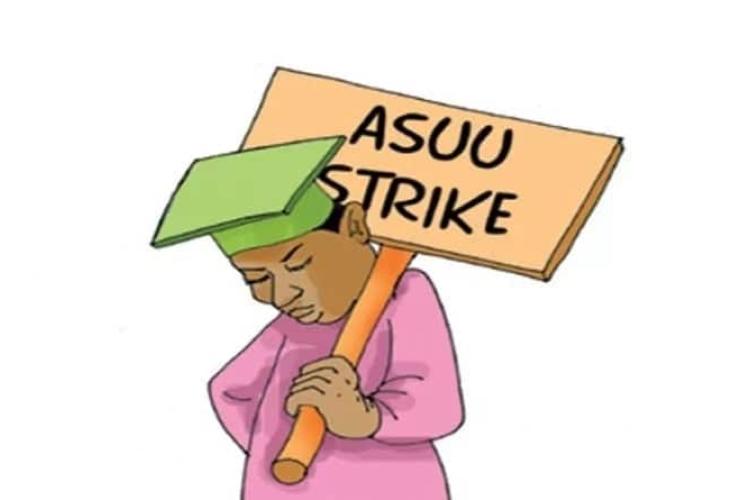By Babatunde Qodri
Since Nigeria’s independence in 1960, we have never witnessed such a long and suffocating strike as it is at the moment when public tertiary institutions will be closed down without serious move by those concerned to avert it.
In a space of two years, our universities have suffered unprecedented deterioration due to incessant industrial action by the Academic Staff Union of Universities (ASUU). Consequently, students are often condemned to stay at home.
This is what we get anytime we elect a leader that cares less about the education sector. Minisiters of Education and Labour, Adamu Adamu and Chris Ngige, are even largely contributory to this agelong industrial action. Despite series of meetings held, nothing tangible has happened to facilitate the return of students to class. This is unarguably appalling.
Professor Emmanuel Osodeke, ASUU Chairman, recently revealed the lack of readiness by the Federal Government to yield to the demands of striking lecturers when he appeared on Channels TV. Osodeke slammed the Minister of Labour for misleading the public on the development while accusing the Federal Government of insincerity in its dealing with the union.
One then wonders whether this administration actually places premium on the future of Nigerian students. The body language of the government is symptomatic of what these abandoned students have to contend with for years.
- 2023: I have and will not endorse Tinubu, others – Adeboye
- I contemplated suicide while recording my forthcoming album – Omah Lay
This is not to throw a jab at the Minister of Education or the Labour Minister. Unarguably, however, I am disturbed by the insouciant approach of the Federal Government to the situation that affects millions of young Nigerians. It is sad to stress that this unfortunate development has resulted in a lot of problems.
For instance, several Nigerians affected by the industrial action have been forced into activities that negatively affect society and their future. Because they say idle hands are susceptible to devilish errands, most students are now into internet fraud and other related engagements to the detriment of the country. This is in addition to the fact that some of these students, having stayed at home for a long, have lost interest in education thereby engaging in unprofitable endeavours.
It is necessary also to admit that the protracted strike translates into a waste of time, with students spending more time than necessary. And this puts them at a disadvantage. While their counterparts in private and state universities have seamlessly unhindered years to run and complete their programmes, students in public universities are trapped.
Those who are supposed to be used as agents of innovation are abandoned to situations that delimit them. This is thoroughly depressing.
Moreover, the strike has a way it contributes to the debilitating nature of the Nigerian education system. Today, Nigerian lecturers seek opportunities outside the country to make their skills and knowledge relevant. There are cases of Nigerians in the medical fields going to countries abroad in search of better conditions.
This is not too good for the country as it ultimately leads to a shortage of competent lecturers in our various public tertiary institutions. Even if the industrial action is called off, the fact that it has forced competent Nigerians to opt lose confidence in the system remains a threat.
My final take: If the Federal Government cannot meet up with the demands of the union, at least it must identify with its clamour since it is in the best interest of public tertiary institutions. Both parties must forge a new mode of communication that recognizes the yearnings of Nigerians.
Done based on sincerity, the government might agree to attend to the demands of the union in batches. Between all of these is the need for committed Ministers of Labour and Education who can drive the government to do the needful. This is necessary to put the country on the path of steady development.

 Join Daily Trust WhatsApp Community For Quick Access To News and Happenings Around You.
Join Daily Trust WhatsApp Community For Quick Access To News and Happenings Around You.

